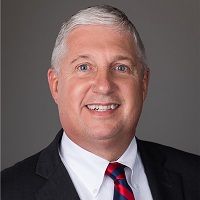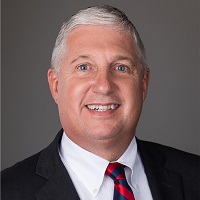Five Financial Planning Secrets of Millionaires
You might be surprised: Most millionaires don't feel rich. Instead, they have smart goals, discipline and a little help along the way.


Profit and prosper with the best of Kiplinger's advice on investing, taxes, retirement, personal finance and much more. Delivered daily. Enter your email in the box and click Sign Me Up.
You are now subscribed
Your newsletter sign-up was successful
Want to add more newsletters?

Delivered daily
Kiplinger Today
Profit and prosper with the best of Kiplinger's advice on investing, taxes, retirement, personal finance and much more delivered daily. Smart money moves start here.

Sent five days a week
Kiplinger A Step Ahead
Get practical help to make better financial decisions in your everyday life, from spending to savings on top deals.

Delivered daily
Kiplinger Closing Bell
Get today's biggest financial and investing headlines delivered to your inbox every day the U.S. stock market is open.

Sent twice a week
Kiplinger Adviser Intel
Financial pros across the country share best practices and fresh tactics to preserve and grow your wealth.

Delivered weekly
Kiplinger Tax Tips
Trim your federal and state tax bills with practical tax-planning and tax-cutting strategies.

Sent twice a week
Kiplinger Retirement Tips
Your twice-a-week guide to planning and enjoying a financially secure and richly rewarding retirement

Sent bimonthly.
Kiplinger Adviser Angle
Insights for advisers, wealth managers and other financial professionals.

Sent twice a week
Kiplinger Investing Weekly
Your twice-a-week roundup of promising stocks, funds, companies and industries you should consider, ones you should avoid, and why.

Sent weekly for six weeks
Kiplinger Invest for Retirement
Your step-by-step six-part series on how to invest for retirement, from devising a successful strategy to exactly which investments to choose.
Millionaire. It’s a word that is a source of envy for many — for good reasons that go beyond the obvious financial advantages. According to Northwestern Mutual’s 2024 Planning & Progress Study, 87% of American millionaires say they have good clarity on how much they should save for tomorrow and spend today, compared with just 66% of the general population. They also feel much more prepared: 87% of millionaires expect to be financially prepared for retirement when the time comes, more than 30 percentage points higher than the average American.
While being “very rich” remains elusive for most people, the wealthy practice five financial habits to build and preserve their wealth that everyone can use to make inroads toward greater financial security.
1. Focus on the big picture
When it comes to wealth, millionaires look beyond today’s challenges and plan for a brighter tomorrow. Eighty-four percent say their financial plans are designed to mitigate long-term risks, like the ups and downs of the market — whereas only 52% of the general population says the same.
From just $107.88 $24.99 for Kiplinger Personal Finance
Become a smarter, better informed investor. Subscribe from just $107.88 $24.99, plus get up to 4 Special Issues

Sign up for Kiplinger’s Free Newsletters
Profit and prosper with the best of expert advice on investing, taxes, retirement, personal finance and more - straight to your e-mail.
Profit and prosper with the best of expert advice - straight to your e-mail.
As life expectancies continue to rise, millions of Americans will live longer lives — so most financial experts agree that financial plans should be designed to last accordingly. Many economic changes will likely occur over a long lifetime, including recessions, periods of high inflation, higher taxes and rising health care costs. By anticipating and planning for key financial risks — and the big picture — people can position themselves for long-term financial security.
2. Act, but don’t overreact
Despite having money, wealthy people aren’t complacent about their finances. They know the value of a sound financial plan, and 78% describe themselves as disciplined or highly disciplined planners — but they have specific financial goals and act on the steps required to achieve them.
A financial plan can help people assess where they are today, identify goals for tomorrow, and take the necessary steps to achieve them. Along with an experienced financial adviser, people can build a comprehensive financial plan that does just that. By following it and using their adviser for advice, they can ensure they stay on plan to achieve their long-term wealth-building objectives.
3. Don’t take chances
Millionaires don’t take chances when it comes to their money — and their financial advisers help ensure their financial plans address situations that could expose them to risk. Eighty-nine percent of the wealthy have an emergency fund, compared with 60% of the general population who say the same. In addition, 79% of wealthy people have a plan to address health care costs — vs only 49% of the general population. And 68% of wealthy people have long-term care built into their financial plans; only 40% of the general population do.
A comprehensive financial plan is vital and should include an emergency fund, health care costs and long-term care. A plan should build in a savings amount of somewhere between three- and 12-months living expenses (depending on a person’s situation) to give the flexibility and financial security needed if facing financial uncertainty. If a health emergency results in permanent disability, disability income insurance can help protect people’s most valuable asset: their ability to earn an income.
4. Stay optimistic about what can't be controlled
Inflation, the economy and Social Security. Wealthy Americans tend to stay optimistic on these issues because of their well-thought-out financial plans, which can withstand key risks. Eighty-four percent of millionaires have a financial plan in place, compared with 52% of the general population. Even if people can’t control the future, a good financial plan can help them anticipate and look to the future with confidence, no matter what is going on economically or politically.
5. Seek professional finance advice
Sixty-nine percent of millionaires work with a financial adviser, compared with just 33% of the general population — and wealthy people consider financial advisers to be their most trusted source of financial advice — more than four times any other source, including a spouse or friend. With an experienced financial adviser by their side, people are more likely to take the strategic actions necessary to achieve their long-term goals.
According to Northwestern Mutual’s 2024 Planning & Progress Study, only 1 in 3 millionaires feel “wealthy.” For most, they say “feeling like a million bucks” is less about believing they’re rich and more about exuding confidence and clarity about the future.
Money alone doesn’t create clarity — financial habits and a solid financial plan do. When people have a comprehensive plan that’s custom-built for their life and an adviser who helps them see their opportunities and blind spots, feelings of anxiety fall and feelings of security rise — as they create wealth and protect what they’ve already built.
Related Content
- Four Steps to Help You Hit Your Magic Number for Retirement
- Estate Planning for Millionaires
- 10 Secrets of the Millionaires Next Door
- You Could Be a 401(k) Millionaire. Here’s How
- 10 Best Places to Become a Millionaire — and the 10 Worst
Profit and prosper with the best of Kiplinger's advice on investing, taxes, retirement, personal finance and much more. Delivered daily. Enter your email in the box and click Sign Me Up.

Kevin has been a Wealth Management Advisor for 35 years and was recognized as a Forbes 2024 Best-In-State Wealth Advisor. Kevin holds multiple professional designations, including the CERTIFIED FINANCIAL PLANNER™ Designation (CFP®) and Chartered Life Underwriter® (CLU®). Additionally, he has Series 7, Series 63, Series 66, Series 26 securities licenses, and Life, Accident, Health and Long-Term Care licenses.
-
 Quiz: Do You Know How to Avoid the "Medigap Trap?"
Quiz: Do You Know How to Avoid the "Medigap Trap?"Quiz Test your basic knowledge of the "Medigap Trap" in our quick quiz.
-
 5 Top Tax-Efficient Mutual Funds for Smarter Investing
5 Top Tax-Efficient Mutual Funds for Smarter InvestingMutual funds are many things, but "tax-friendly" usually isn't one of them. These are the exceptions.
-
 AI Sparks Existential Crisis for Software Stocks
AI Sparks Existential Crisis for Software StocksThe Kiplinger Letter Fears that SaaS subscription software could be rendered obsolete by artificial intelligence make investors jittery.
-
 Quiz: Do You Know How to Avoid the 'Medigap Trap?'
Quiz: Do You Know How to Avoid the 'Medigap Trap?'Quiz Test your basic knowledge of the "Medigap Trap" in our quick quiz.
-
 5 Top Tax-Efficient Mutual Funds for Smarter Investing
5 Top Tax-Efficient Mutual Funds for Smarter InvestingMutual funds are many things, but "tax-friendly" usually isn't one of them. These are the exceptions.
-
 Why Invest In Mutual Funds When ETFs Exist?
Why Invest In Mutual Funds When ETFs Exist?Exchange-traded funds are cheaper, more tax-efficient and more flexible. But don't put mutual funds out to pasture quite yet.
-
 We Retired at 62 With $6.1 Million. My Wife Wants to Make Large Donations, but I Want to Travel and Buy a Lake House.
We Retired at 62 With $6.1 Million. My Wife Wants to Make Large Donations, but I Want to Travel and Buy a Lake House.We are 62 and finally retired after decades of hard work. I see the lakehouse as an investment in our happiness.
-
 Social Security Break-Even Math Is Helpful, But Don't Let It Dictate When You'll File
Social Security Break-Even Math Is Helpful, But Don't Let It Dictate When You'll FileYour Social Security break-even age tells you how long you'd need to live for delaying to pay off, but shouldn't be the sole basis for deciding when to claim.
-
 I'm an Opportunity Zone Pro: This Is How to Deliver Roth-Like Tax-Free Growth (Without Contribution Limits)
I'm an Opportunity Zone Pro: This Is How to Deliver Roth-Like Tax-Free Growth (Without Contribution Limits)Investors who combine Roth IRAs, the gold standard of tax-free savings, with qualified opportunity funds could enjoy decades of tax-free growth.
-
 One of the Most Powerful Wealth-Building Moves a Woman Can Make: A Midcareer Pivot
One of the Most Powerful Wealth-Building Moves a Woman Can Make: A Midcareer PivotIf it feels like you can't sustain what you're doing for the next 20 years, it's time for an honest look at what's draining you and what energizes you.
-
 Stocks Make More Big Up and Down Moves: Stock Market Today
Stocks Make More Big Up and Down Moves: Stock Market TodayThe impact of revolutionary technology has replaced world-changing trade policy as the major variable for markets, with mixed results for sectors and stocks.